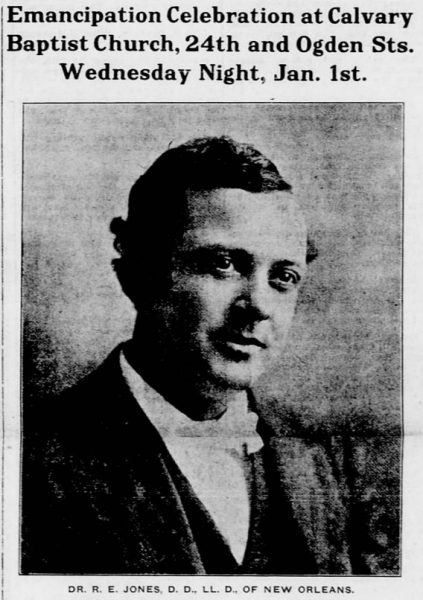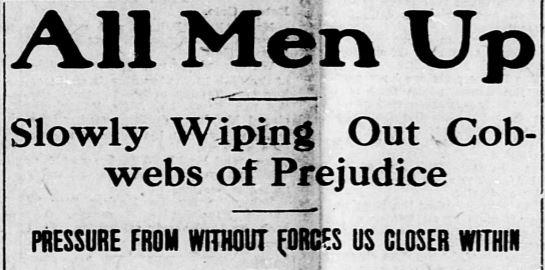
The Colorado Historic Newspapers Collection is more than just an online catalog for Colorado’s Historic news publications. It is an open educational resource and preservation tool that offers access to the stories and events that have shaped Colorado and the nation. Furthermore, the range of publications offered allows readers a glimpse into life in Colorado told through the voices of even its once disenfranchised populations. As we continue to celebrate Black History Month, the CHNC would like to pay special tribute to the news publications that have been a voice for our black communities and shaped Colorado’s printed cultural history. The Statesman (1889-1961) and the Denver Star (1879-1882) represent a pivotal era in history as African American communities grew and shaped the cultural landscape of Colorado and the American West.

Founded in 1888 and published in Denver, the Statesman was a weekly paper that served the African American community in Colorado, Wyoming, Montana, Utah, and New Mexico. The paper acted as a channel through which its readers could “voice their opinions, assert their rights, and demand their due recognition.” The newspaper reported local, church, and society news and events, as well as national stories that would be of particular interest to African Americans residing in the Mountain West. The publication also featured op-eds about interracial marriage, Jim Crow Laws, and segregation. When the controversial movie Birth of Nation was released in 1915, the paper, by then known as the Denver Star, ran opinion pieces condemning the film, noting in one such piece that its evil “lies in the fact that the play is both a denial of the power of development within the free Negro and an exaltation of race war.” The paper repeatedly called upon its readership to boycott Birth of a Nation and printed scathing opinion pieces such as a speech delivered by William Lewis, the first African American Assistant Attorney General, in which he referred to the reels of the film as “three miles of filth.”
The Statesman/Denver Star flourished under the direction of notable editors and publishers. Joseph D.D. Rivers, the first proprietor of the Statesman, was a former student of Booker T. Washington at the Hampton Institute in Virginia. Edwin H. Hackley, who took over as editor in 1892, was the first African American to be admitted to the Colorado bar and originated the American Citizens’ Constitutional Union, “designed to unite the efforts of the colored people in all parts of the country for the advancement of their rights and opportunities.” His wife, Azalia Smith Hackley, served as a co-editor of the women’s section of the Statesman, and was the first African American graduate of the University of Denver’s School of Music, a renowned singer, choral director, and activist.

In 1898, George F. Franklin purchased the Statesman from Hackley and served as editor until his death in 1901, after which his widow, Clara Williams Franklin and his son, Chester Arthur Franklin, acted as editors/publishers. In August 1906, the Statesman became Franklin’s Paper, The Statesman. Then in November 1912, C.A. Franklin announced that the Statesman would become the Denver Star, stating that it was “a change of name and nothing more,” in order to distinguish it from the similarly titled Colorado Statesman, edited and published by J.D.D. Rivers, the original editor of the Statesman. In March 1913, Franklin sold the Denver Star to the Denver Independent Publishing Company which published the paper under this name until 1963.
There are 398 issues of the Statesman and 308 issues of the Denver Star available thus far on the CHNC spanning from 1905 to 1918. Check out ColoradoHistoricNewspapers.org to learn about Colorado’s hard-fought black history through the voices of the people who lived it.
Content Provided by History Colorado
- Topics in History: Intersectionality in Colorado: Women’s Rights are Human Rights - March 15, 2019
- Black History is Colorado History - February 22, 2019
- Celebrating Black Voices with the Book Club Resource - February 15, 2019